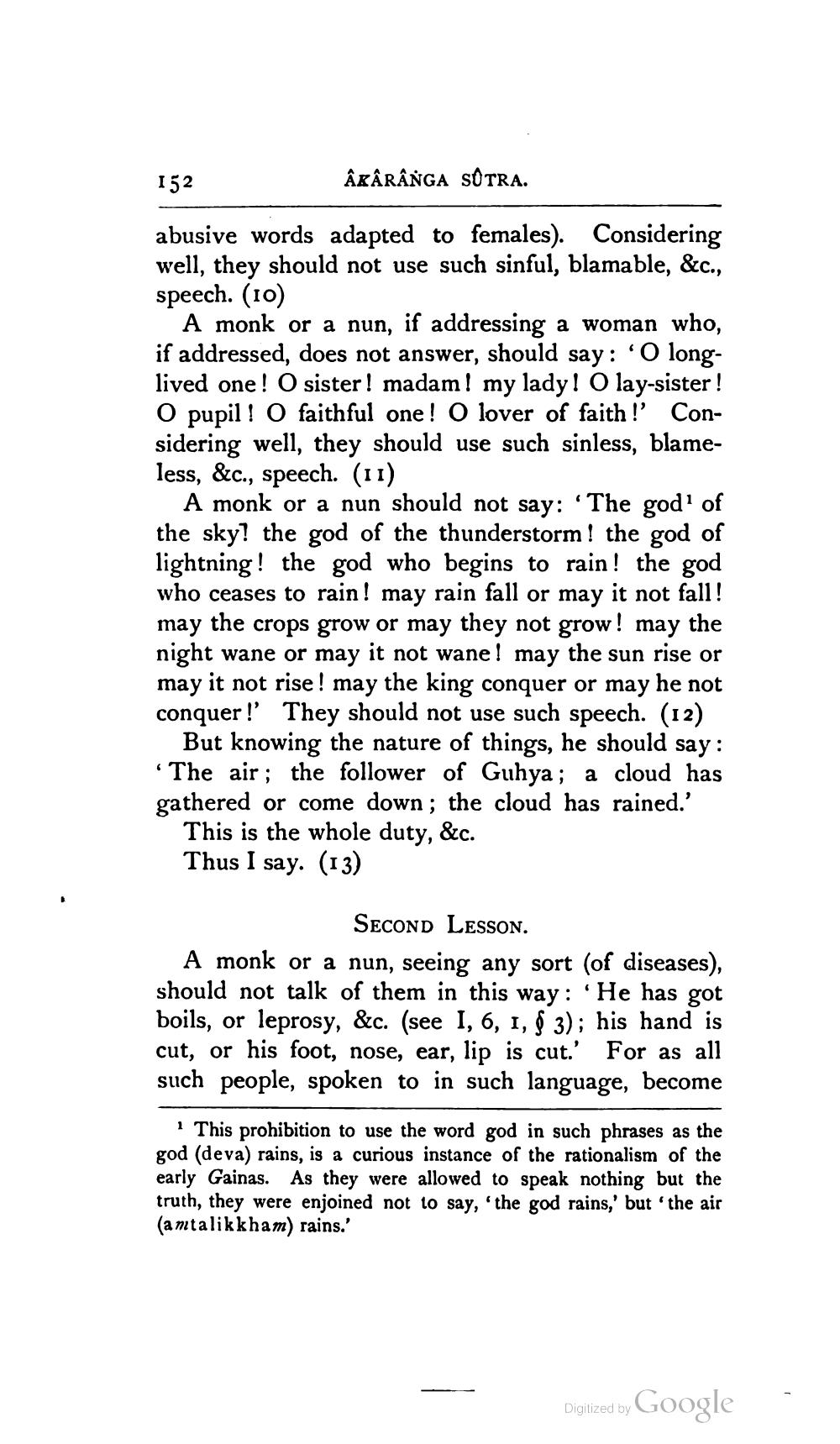________________
152
ÂKÂRÂNGA SOTRA.
abusive words adapted to females). Considering well, they should not use such sinful, blamable, &c., speech. (10)
A monk or a nun, if addressing a woman who, if addressed, does not answer, should say: 'O longlived one! O sister! madaml my lady! O lay-sister! O pupil! O faithful one! O lover of faith!' Considering well, they should use such sinless, blameless, &c., speech. (11)
A monk or a nun should not say: 'The god of the sky! the god of the thunderstorm! the god of lightning ! the god who begins to rain! the god who ceases to rain! may rain fall or may it not fall! may the crops grow or may they not grow! may the night wane or may it not wane! may the sun rise or may it not rise! may the king conquer or may he not conquer !' They should not use such speech. (12)
But knowing the nature of things, he should say: • The air ; the follower of Guhya; a cloud has gathered or come down; the cloud has rained.'
This is the whole duty, &c. Thus I say. (13)
SECOND LESSON. A monk or a nun, seeing any sort (of diseases), should not talk of them in this way: 'He has got boils, or leprosy, &c. (see I, 6, 1, § 3); his hand is cut, or his foot, nose, ear, lip is cut.' For as all such people, spoken to in such language, become
1 This prohibition to use the word god in such phrases as the god (deva) rains, is a curious instance of the rationalism of the early Gainas. As they were allowed to speak nothing but the truth, they were enjoined not to say, 'the god rains,' but 'the air (amtalikkham) rains.'
Digitized by
Digitized by Google




